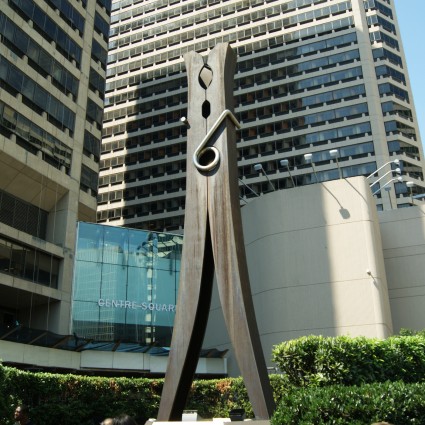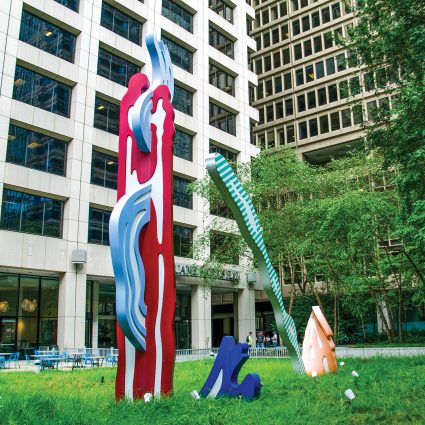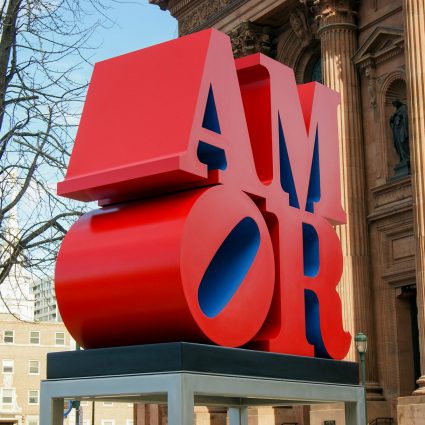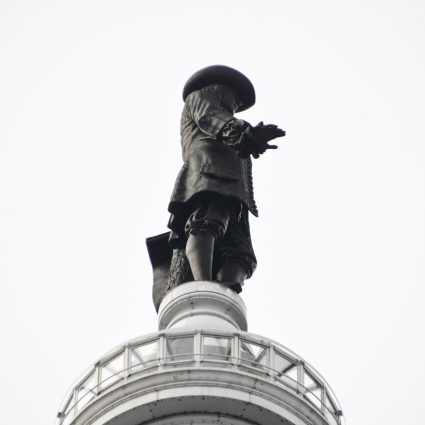At A Glance
For the U.S. Bicentennial in 1976, Robert Indiana lent the city a large aluminum sculpture of his “love” image
Indiana first produced this design as a painting in 1964
F. Eugene Dixon, local businessman and then chairman of the Philadelphia Art Commission, purchased the work and donated it to the city
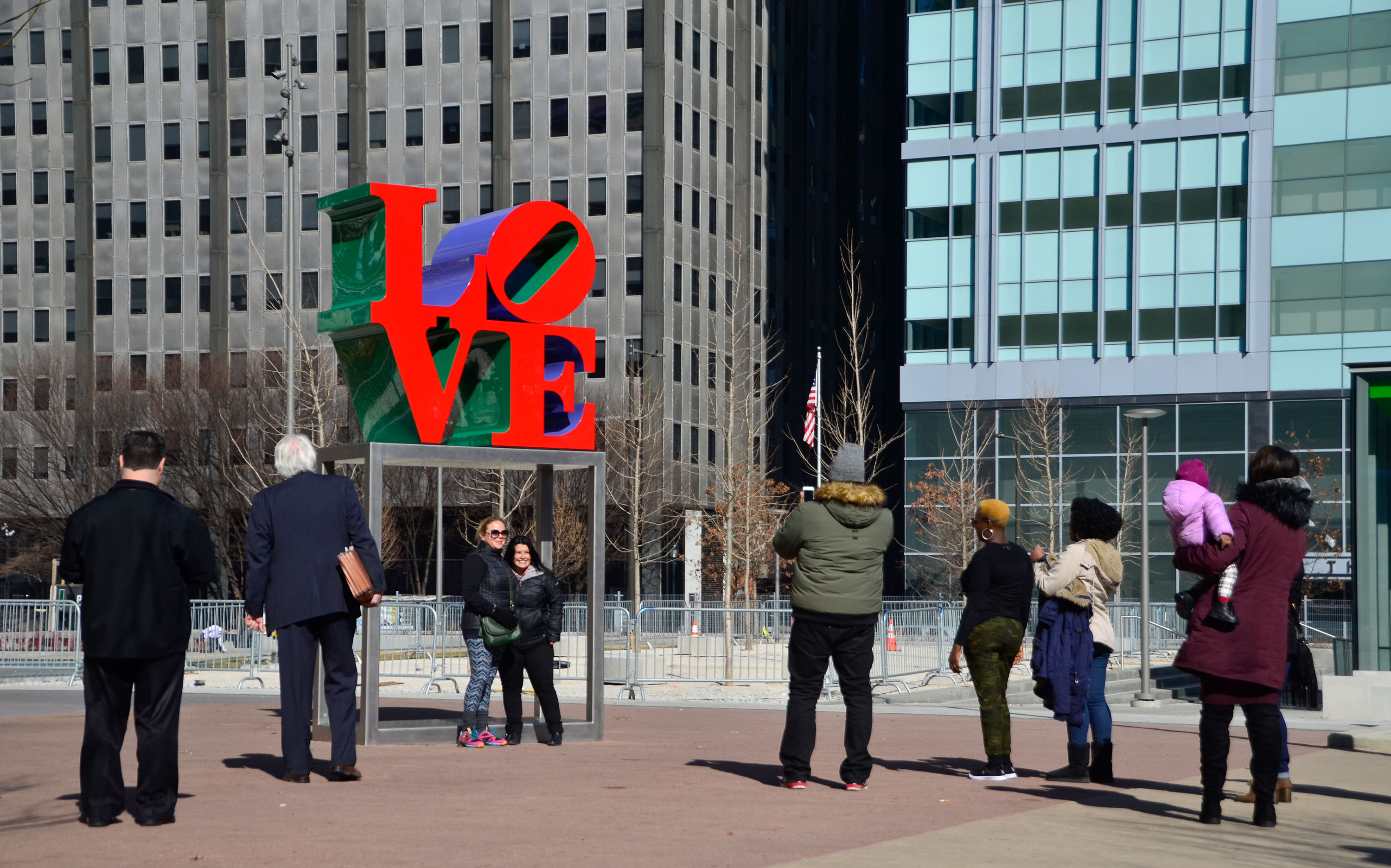
For the bicentennial celebration in 1976, Robert Indiana lent the city a large aluminum sculpture of his “love” image. Indiana first produced this design as a painting in 1964, and within a few years it had been used on a U.S. postage stamp and innumerable unauthorized jewelry, posters, and plates.
An uproar ensued…local media demanded to know why the sculpture had been allowed to slip away.
The sculpture was installed in John F. Kennedy Plaza not far from City Hall, and for two years after the bicentennial it remained there on “extended loan.” During that time Indiana’s gallery in New York tried to sell the work to the city. When the sale could not be arranged, the gallery had a truck remove LOVE to New York, where a potential buyer was interested in seeing it.
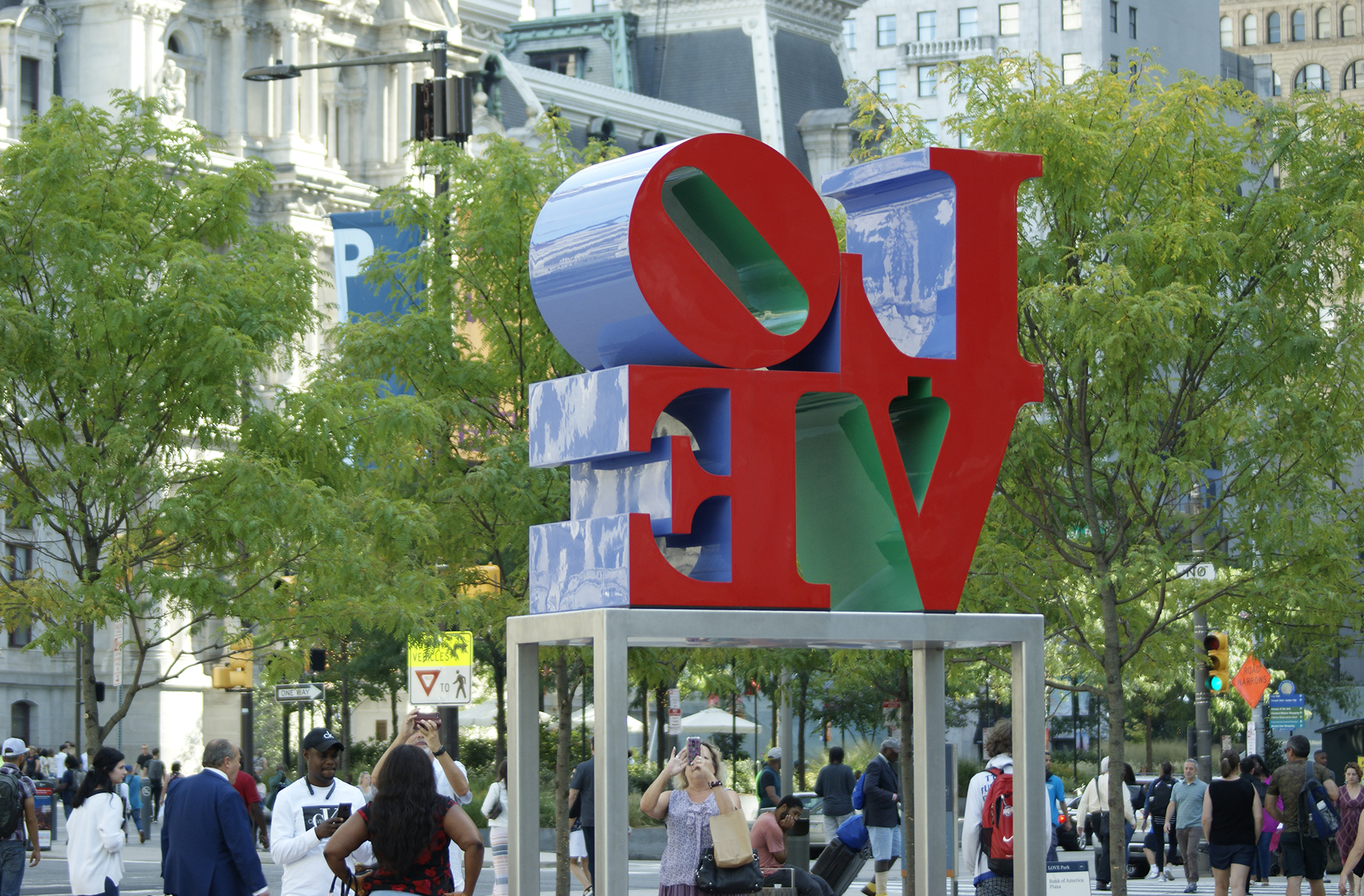
An uproar ensued. The Philadelphia Inquirer and other local media demanded to know why the sculpture had been allowed to slip away.
F. Eugene Dixon, local businessman and then chairman of the Philadelphia Art Commission, purchased the work and donated it to the city, and soon it was reinstalled in the Plaza, now affectionately referred to as LOVE Park.
In February 2018, after a year out of public view for conservation and to allow for the redesign of LOVE Park, LOVE returned to the plaza but with a new color scheme of red, green, and purple – not blue. The City of Philadelphia discovered that sections of the sculpture had been incorrectly painted blue during previous restorations. Representatives of the artist informed the City of the original color scheme and archival photographs from Temple University confirmed the original use of purple instead of blue.
Adapted from Public Art in Philadelphia by Penny Balkin Bach (Temple University Press, Philadelphia, 1992).
Voices heard in the Museum Without Walls: AUDIO program: Robert Indiana (1928-2018) is the American painter and sculptor who created the iconic LOVE sculpture. Adrian Dannatt is the author of Robert Indiana: Hard Edge and Robert Indiana: Wood. | Segment Producer: Lu Olkowski
Museum Without Walls: AUDIO is the Association for Public Art’s award-winning audio program for Philadelphia’s outdoor sculpture. Available for free by phone, mobile app, or online, the program features more than 150 voices from all walks of life – artists, educators, civic leaders, historians, and those with personal connections to the artworks.
RESOURCES:
- Kids Activity Page for LOVE
- A LOVE story: How a sculpture came to symbolize Philadelphia (6abc)
- Penny Balkin Bach for the Inquirer: “LOVE sculpture symbolizes ‘what we hope for, cherish, and memorialize’”
This artwork is part of the Along the Benjamin Franklin Parkway tour, and the Around City Hall tour.
